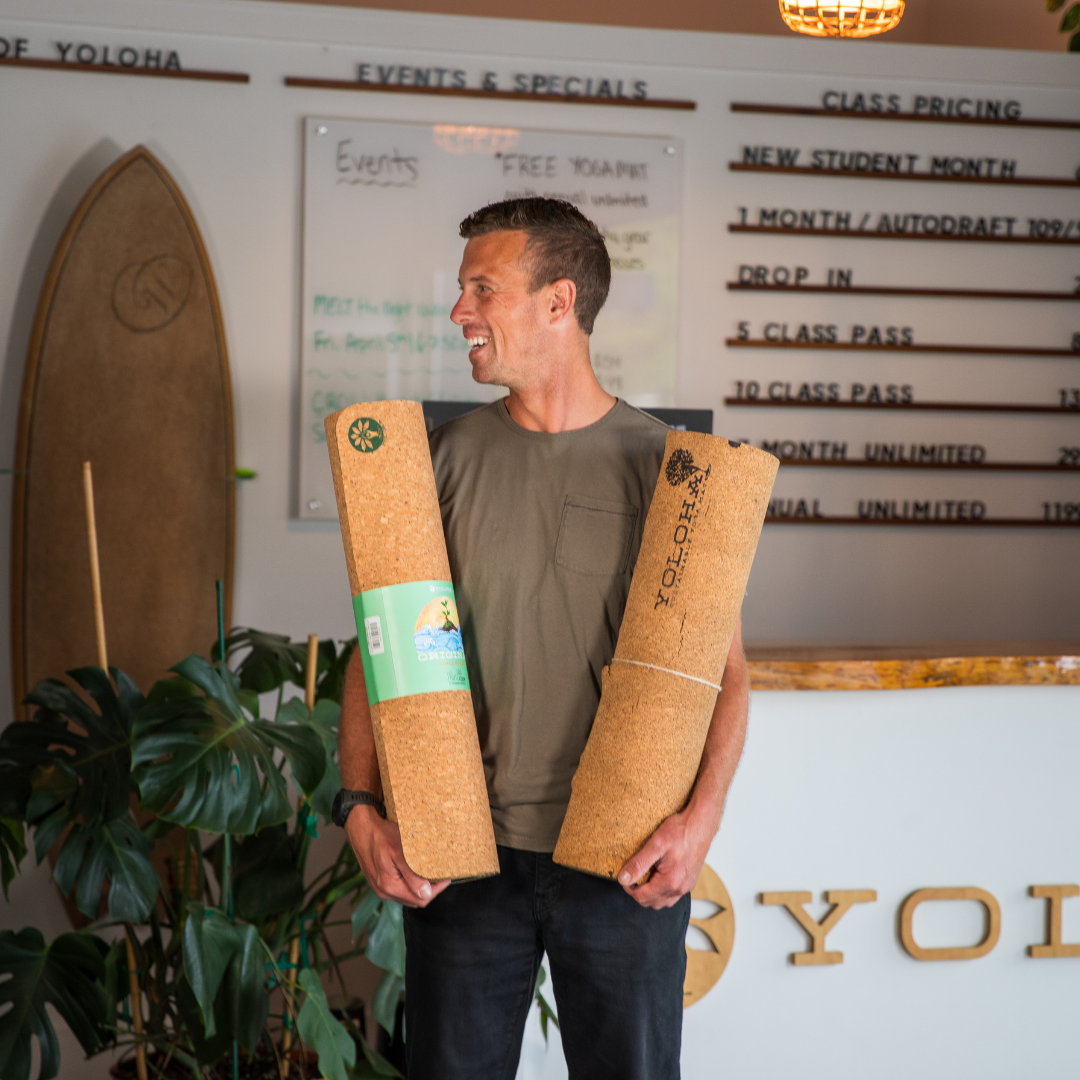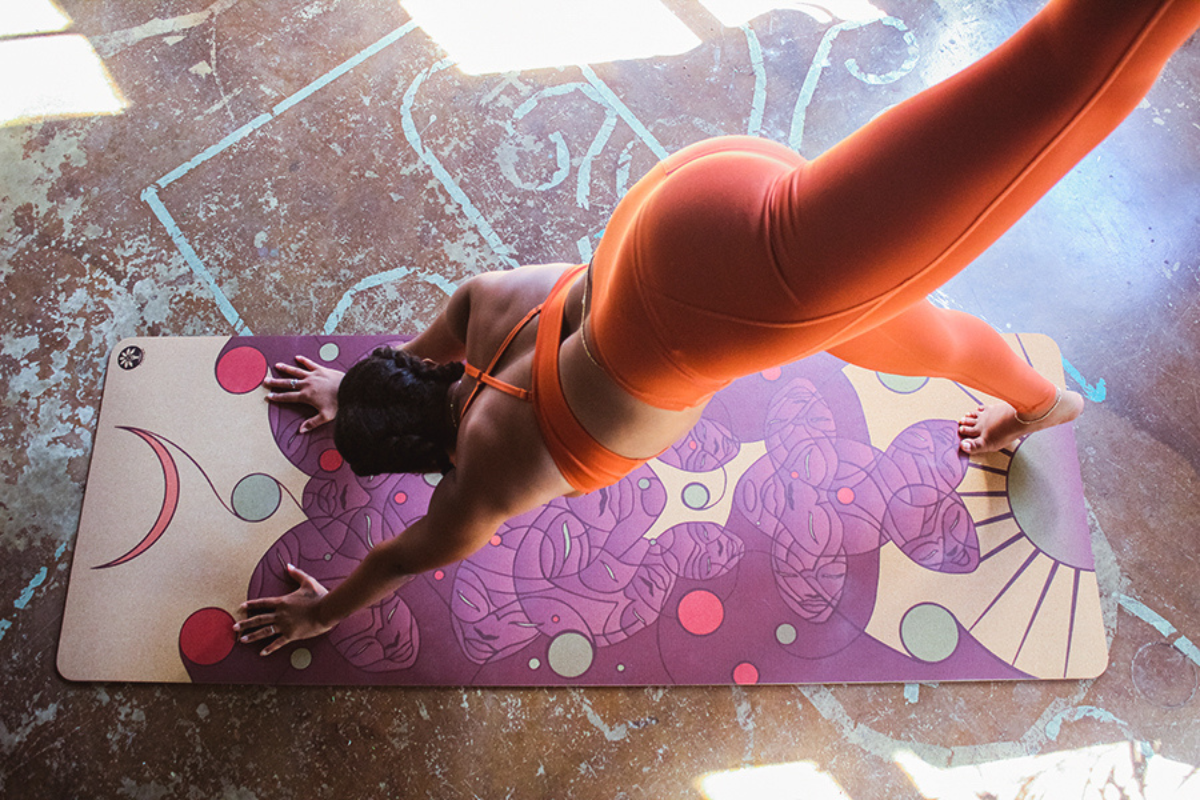November is here and we can’t think of a better way to celebrate than to promote #noplasticnovember. In this article, learn about the issues with plastic and recycling as well as some steps you can take to reduce plastic waste!
Our Efforts
Here at Yoloha, we are extremely conscious of our plastic use and consumption. Not only do we steer clear of any single-use plastic in packaging for our daily shipments, but we have also worked closely with our manufacturers to actually reinvent packaging procedures, reducing our plastic waste by 98%!
Additionally, we are constantly innovating our products and materials to be as sustainable as possible. By combining our signature cork surface with our new plant foam material made from sugar cane, we have achieved a mat made from 70% renewable materials (and 0% plastic!). We believe it is more important to produce and use more consciously, rather than just creating products to be recycled.
It doesn’t stop there! We are proud to offer carbon neutral shipping with Ecocart and for the entire month of November, Yoloha will be offering 100% free carbon neutral shipping on all orders!
The Issue with Recycling
Did you know that only 5% of plastic is actually recycled? According to recent studies, more plastic is being produced than ever before and even less plastic is actually being recycled. This is because it is too expensive to collect and sort plastic and not to mention too difficult due to thousands of different types of plastics out there that can not be combined. Additionally, waste management experts have found that the more plastic is reused, the more toxic it becomes.
The Solution
Producing and consuming recyclable plastic simply isn’t enough. We need to reach for more renewable and reusable materials to stop plastic waste now!
Steps to Reducing Plastic Waste
1. Bring Your Own Container
Whether you are grabbing a cup of coffee, a drink of water or taking leftovers from your favorite restaurant, bring your own reusable container! There are thousands of great reusable coffee mugs, water bottles (like our Yoloha bottles) and tupperware out there on the market. Invest in them one time and then use them for years to come. Plus, eliminate all the plastic waste you would otherwise be consuming!
2. Avoid single use plastics
Plastic plates, cups, straws and utensils are causing immense harm to our planet- particularly ocean plastic pollution. Save the turtles and other marine life by avoiding these at all costs. More than likely, we all have our own plates, cups and utensils. But did you know there are reusable straws made from materials like metal, glass and silicone as well? Try substituting one of these for the tiny plastic straw that comes in your drinks!
3. Use Your Own Bags
Most of us go grocery shopping at least once a week. If we used a reusable grocery bag every time - think about how much plastic that would save! We recommend keeping them in the car so you always have them handy. You can use them for retail shopping as well!
4. Eliminate Plastic Wrap
You may associate cling wrap with keeping your foods fresh but it is not recyclable and not worth it! Instead, use foil, which is recyclable. Or better yet, use Beeswax Wraps - a 100% natural solution made from cotton, Pine Resin, Jojoba Oil and local Beeswax.
5. Do it Yourself!
Most things we buy in the grocery store, that come processed and packed in single use plastic, we can actually make ourselves. Challenge yourself in making your favorite daily snacks like granola, nut butter, bread and more! This will be a fun learning process that will save you from all the extra, unnecessary ingredients that come in store bought products. You will also save some money!
The Conclusion
These are just some of the ways we can start reducing our plastic intake. Of course, the best thing you can do is spread the word! Make sure you share this article with friends and family and be sure to let us know your favorite way to reduce plastic waste.



Comment
Yoloha is amazing! A model company! Thanks for being part of the sustainable business and product production movement.